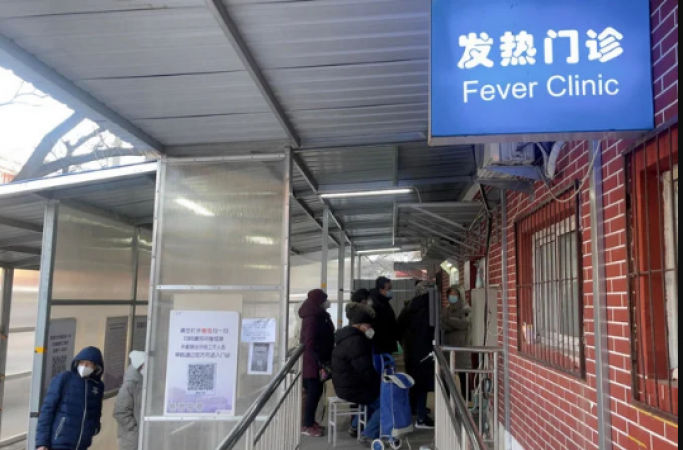
BEIJING: China rushed Thursday to vaccinate its most vulnerable citizens in preparation for waves of COVID-19 infections, with some analysts raising the death toll after easing strict controls that successfully contained the pandemic for three years. Anticipated growth.
The World Health Organization has also expressed concern about China's lack of vaccinations for its 1.4 billion people, and the United States has offered to assist China in tackling a surge in infections. These factors have pushed
Beijing began lifting its strict "zero-COVID" controls last Wednesday, dropping testing requirements and easing quarantine rules, which have hurt the economy and caused mental anguish among millions of people.
Also Read: Zelenskyy urges New Zealand to concentrate on the ecological cost of war
President Xi Jinping's "zero-COVID" policy was abandoned in the face of unprecedented large-scale protests. However, according to WHO emergencies director Mike Ryan, COVID-19 infections were rising in China long before the government decided to gradually relax its strict rules.
Ryan told a briefing in Geneva that the current narrative is that China lifted restrictions and the disease suddenly got out of control.
“The disease was spreading rapidly because, in my opinion, the control measures to contain the disease were insufficient. I think China concluded that was no longer the best course of action strategically.
As China abandons the zero-COVID policy, there are more and more signs of chaos, including long lines outside fever clinics, drug shortages and panic buying across the country.
In a video shared online on Wednesday, more than ten people were seen sitting on stools outside a hospital clinic in central Hubei province while they were connected to intravenous drips and dressed for the cold. The location of the video was confirmed by Reuters.
Also Read: An Australian woman passes away after falling from a cruise ship
China has made great efforts to contain the virus over the past three years, but analysts warn that China may now be paying a price to protect the population with a lack of "herd immunity" and low vaccination rates among the elderly .
Resuming restrictions, testing and tracing will be largely ineffective in bringing the outbreak under control as authorities have allowed cases to spread in Beijing and other cities, analysts at Eurasia Group wrote in a note on Tuesday.
In the coming months, COVID-19 may kill up to one million people.
China's National Health Commission (NHC) announced on Wednesday that it will start giving second COVID-19 vaccine booster shots to high-risk groups and the elderly over the age of 60. China has said that about 90% of its population has received the vaccination.
China reported 2,000 new symptomatic COVID-19 infections on 14 December, as opposed to a daily average of 2,291. Due to the low testing done in the nation, the official figures have lost their credibility as a benchmark.
Government media quoted NHC spokesman Mi Feng as saying on Wednesday that there is a need to speed up the promotion of vaccination.
China has recently increased its vaccination rate. According to the most recent official figures, 1.43 million shots were administered on Tuesday, a significant increase from daily rates of between 100,000 and 200,000 in November.
Data shows that it has given a total of 3.45 billion shots.
However, a care facility in Shanghai announced on Wednesday that it was barring visitors and non-essential deliveries as well as medicines, testing kits and protective gear because of low vaccination rates among the elderly.
In a letter published on its official WeChat account page, Yuepu Tianyi Nursing Home said, "We are considering how to ensure the safety of your grandparents.
Beijing has relied on locally produced vaccines because it has been largely resistant to Western vaccines and treatments.
Oral COVID-19 therapy from Pfizer is one of the few foreign drugs it has approved Paxlovid.
Also Read: Australian police look into violent views held by cop killers
Although, until recently, the treatment was only available in hospitals for high-risk patients, in recent times, it is beginning to show signs that it may soon be available to the general public. China Meheco Group Co Ltd on Wednesday reported signing a contract to import the drug from the US pharmaceutical company.